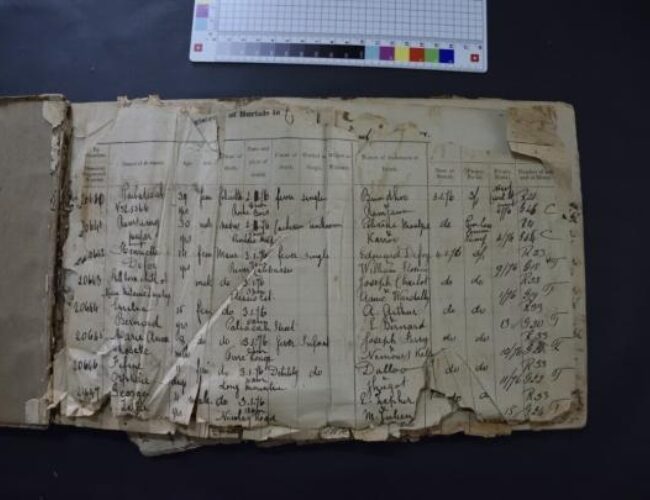The Bois Marchand Cemetery in Mauritius was the largest cemetery in the Indian Ocean. The records held in its archive are a unique repository of demographic and disease data, and no other repository of the kind exists. Inadequate curation and indifference put the archive at risk of disappearing.

The archives of the Bois Marchand Cemetery date back to 1868 and they hold the complete Burial Records of the individuals interred in the cemetery. The records detail the demographic data for individuals buried in Bois Marchand, a cemetery that is segregated according to religious and vocational affiliation ie. Christian, Hindu or Muslim, for example, or Military Personnel or Police Force. These reflect the divided nature of the historic Mauritian society, thus the archives are an insight into social norms surrounding burial practice, as well as a reflection on the circumstances for the living.
The records are not recognised by any institutional body. The site is prone to water leakage, and the unsuitable storage conditions put the material at risk of deterioration.
The project digitised 63 burial register books and 80 burial register book fragments from August 1867 to October 1921. The project trained a number of academics, some of which have then developed similar projects in other countries. Moreover, the project trained a number of undergraduate students in digitisation. The staff at the Aapravasi Ghat Trust Fund, who are currently responsible for the material, were trained in protection, handling and digitisation of archival documents and registers.
